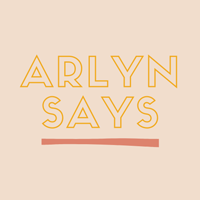Reclaiming My Heritage The Best Way I Know How: Through Food

Project 365, Day 90/365
Growing up as a child of immigrants, you wanted so badly to not feel ‘othered,'” I said to my friend the other day, with an audience of another friend and Charles. We were having a conversation about something I can’t fully remember, that somehow landed here. “You push away your parents’ culture in a move to assimilate and be as American as possible so that you can feel white, even when you’re not.”
It reminded me of that scene in the movie “My Big Fat Greek Wedding,” where the main character dreamed of eating white bread sandwiches at lunch like the other American kids. When I saw that, I connected with those emotions so hard. No one wants to be the kid with the steaming hot lunch of “smelly” (delicious) ethnic food when everyone around you was busy shoving Kudos into their mouths and licking the BBQ Frito dust off their fingers.
You see, as I’ve mentioned before, my family is of Puerto Rican descent. Puerto Rico, of course, is an American territory. They use the US dollar as currency, you don’t need a passport to go back and forth between the island and the mainland, anyone born in PR is born with American citizenship, and English is regularly the first language in school. My parents went to English schools growing up, taught by American nuns. But trust me, none of this makes us American. I was born in the states, as was my mother, and as a kid, I strangely leaned on that. I never quite felt Puerto Rican enough, at least when I compared myself to my cousins who lived there or even my siblings who were born there and had gone to school there, if only for a few years.
I was the family “gringa.” I understood Spanish perfectly, and while I could also speak it rather fluently, I stubbornly refused. Unless I was speaking with my grandmothers or other relatives, out of respect. But at home, with my parents, not a single “hola” would come out of my mouth. They’d ask me to go clean my room in Spanish. I’d answer in English. It’s not that my parents couldn’t speak English. No. Where many of my Latino friends’ parents struggled greatly with vocabulary and had accents as thick as pigskin, mine ping-ponged back and forth between the two languages with ease. They just really wanted to instill their culture and mother tongue into their young children’s minds before they got closed up and impenetrable. While I could admit to myself that the food was delicious, I’d turn up my nose at a plate of rice and beans, asking for Burger King in its place. I can see now how infuriating I must have been as a child and young adult.
I rejected my culture for the first half of my life, it’s my karmic pay back.
If my mom or dad were cooking something that even resembled food from la isla, I didn’t pay the least bit of attention. Which is why now, as a grown person, I know how to make very few Puerto Rican meals without having to reference a recipe. And even then, I simply don’t have the touch. I rejected my culture for the first half of my life, it’s my karmic pay back.
But the thing is, like I said to my friend, I don’t think this is a sad truth unique to me. No kid wants to feel different, so you do everything in your power to push away the “different” to feel like everyone else. And then you fast forward 20, 30 years, and you realize you missed it all. You missed yourself, your true ancestral essence.
Lately, I’ve been feeling a siren-like pull back to my heritage. To the land I turned my face away from for so long. Did I enjoy our summer vacations there, running around my grandparents’ property, picking quenepas from the tree in their front yard? Oh yes. I wasn’t exactly ashamed of where my family came from, I just held it perhaps too close to my chest. When people would ask me where I was from, with my dark features and tan skin, I’d say “my parents are Puerto Rican.” As if I wasn’t, somehow. There was a time when one of my mother’s cousins did a years-long genealogy study of our lineage, and when he shared the results, I couldn’t have been more pleased that my maternal great-great grandmother was Italian. I can also remember my mom telling me how her father’s mother’s mother was French, and that my great grandfather’s lineage had roots in the native Taino people of the island. She’d always tell me with such pride that I was “Taino.” While I share my dad’s warm caramel skin tone, I was the only one with straight dark hair and almond-shaped eyes. She’d often poke fun at me that I “looked” the most Puerto Rican, but was in fact the “gringa.” I’d shrug it off, and learned to quickly amend my answer: “my parents are Puerto Rican, but I think somewhere down the line I’m French and Italian.” I shudder at the thought, embarrassed I used that as some sort of cultural crutch.
I have a complicated relationship with my heritage, clearly. As I get closer to (hopefully) having children of my own, I realize that they’ll be even further away from it than I made myself, and their relationship with their heritages will be complicated, but I plan on talking to them about it openly. Will they identify as partly Puerto Rican? Will my mangled-up, spotty Spanish be enough to get them to naturally be able to roll their Rs and understand the idioms? Or will they feel like outsiders when reconnecting with family on trips to the island? God, I hope not, but I know they likely will. It would only be natural unless we packed up and moved there now to raise those future babies. And we’re not doing that.
This weekend, when I was horizontal in bed, I had the sudden urge to call up my grandmother and ask her things. Ask her about her childhood. About where she grew up. About what it was like living in Puerto Rico in the 1930s and ’40s. It was too late at the time to ring her up, but I will. While I still have time to ask her those things.
I really started thinking about this all after my post about not being able to cook rice. I was mostly kidding about my ancestral shame (I wasn’t kidding about not being about to make rice, just that my forefathers hang their head at me…or do they?), but my brain kept poking at me afterward. “You don’t know enough about your culture.” Poke. “You’ll never be American enough to be American, you know.” Poke. “WHY CAN’T YOU MAKE RICE, NO BUT FOR REAL?” Pokity poke poke. That’s not what I want, for the record, to be unmistakably American. Yes, I am an American. I was born in this country, English is my first language, but I’m proud of my lineage and I don’t want to lose the slivers and shards of what I identify with.
A reader DMed me on Instagram that same day my rice post went live. She was a fellow Puerto Rican, and we joked back and forth about neither of us perfecting the grain. She sent me a picture of boxed Goya rice, and I thought “ain’t no shame in that.” Then she told me there was a great article in The New York Times that day, coincidently, about Puerto Rican recipes. I had seen the daily newsletter come through my email, and I had earmarked it to go back to read. It wasn’t lost on me, the coincidence that the day I admit my failures as a Latin cook, the Times publishes a story about an accomplished Latin cook, an accomplished Puerto Rican chef, sharing what she believed to be quintessential Puerto Rican meals and recipes. Checkmate NYT. Nice move.
Never American enough. Never Puerto Rican enough. A pupu platter of cultures.
That night, I lay in bed, devouring the article, and when I got to the end of it, I felt a giant hole in my insides. There was so much I didn’t know. About my island’s history. About the food. About the people. I recognized most of the places and recipes she mentioned, but she wrote about them like they were hers, because they were. The island was a part of her, and she could claim it all as her own. That’s something I could never do, and I feel that lack in my soul. Never American enough. Never Puerto Rican enough. A pupu platter of cultures. Or rather, a sancocho of cultures (“a word often used as slang by Puerto Ricans to mean a big old mix of things,” Von Diaz is quoted saying in that article…it’s also a soup rightfully so). A uniquely child-of-immigrants experience all my own, I suppose.
So what’s next? I can’t shake the magnetism, the pull to uncover more about the Puerto Rican blood that pumps through my veins. And to me, the easiest place to start is with the food. Well, first, I should probably call my grandmother. But then…the food. Food is my love language, Puerto Rican people live and breathe their food, so what better way to romance my heritage than through its flavors? My first course of action was to buy the one cookbook that is almost certainly in every Boricua home. Heck, even my sister has it, and she regularly calls me to make sure she’s buying a cucumber and not a zucchini. How could I have never purchased myself a copy? See the problem?
The English version is called “Puerto Rican Cookery,” though I’m pretty sure my mom has the Spanish copy, Cocina Criolla. The pages are tattered and smattered with tomato sauce that bubbled up from some fricase de pollo, the front cover hanging on by a fiber. Or possibly that’s what my sister’s copy looks like. It’s hard to remember.
This little voice inside me keeps telling me to film myself cooking, to teach myself how to make Puerto Rican food for whoever will watch, probably on Instagram, but I’m hesitant. Adding another regular commitment to my daily tableau seems daunting, but if the book “Big Magic” taught me anything, it’s that when ideas keep nagging you, it’s because they desperately want to be brought to life. And if I’m not the one to do it, that little idea will find another person to bring it into the world. And I SWEAR if I scroll through Instagram in a month and see some 30-something woman doing an Instagram series about learning how to cook Puerto Rican food, I’ll probably curl up into a ball and never reemerge. RIP Project 365. Let’s see, I’m going to think on it.
So that’s where I am mentally. In a strange cultural limbo that I’m clawing my way out of. Or at least, I recognize that I want to claw my way out of it. Wish me luck in reclaiming my familial roots.
Hasta mañana, FOAS. 😉

